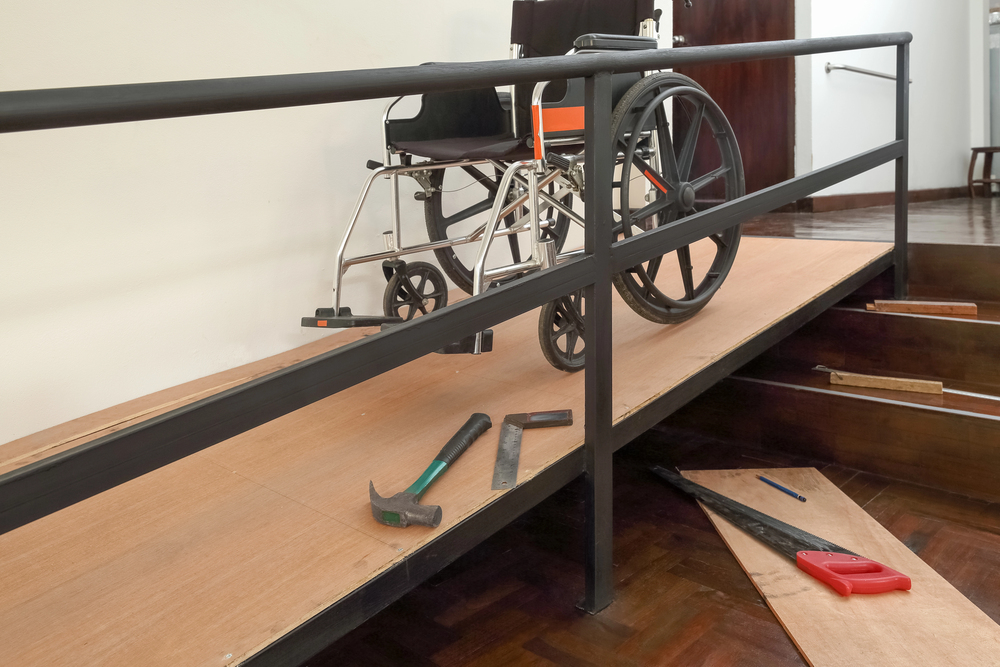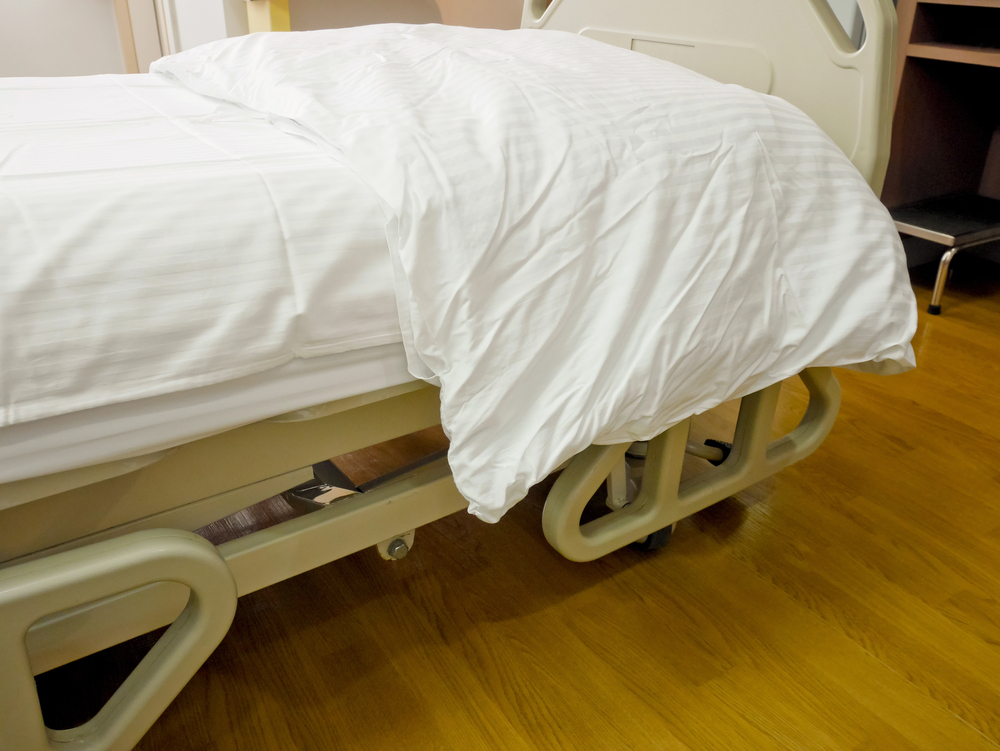The Nursing Home Law Center is committed to providing the legal resources necessary to hold negligent facilities accountable.
Poor Hygiene in Nursing Homes
Proper hygiene is essential to protecting the health, safety, and dignity of nursing home residents. When nursing homes fail to maintain a clean environment or support good personal hygiene, vulnerable nursing home residents face serious health risks. Poor hygiene in nursing homes can lead to dangerous infections, disease outbreaks, and lasting health complications.
In some cases, nursing home neglect involving poor hygiene may even amount to elder abuse. If you believe a loved one has suffered because of nursing home hygiene neglect, contact a nursing home abuse attorney for help.
Verdicts and Settlements Recovered by the Nursing Home Law Center
Families trust our nursing home abuse lawyers to fight for justice, and we have recovered millions for victims of neglect and mistreatment, including:
$2,150,000 wrongful death settlement obtained for the family of a resident who developed severe bedsores and fatal sepsis while under nursing home care.
$1,500,000 recovery for the family of a dementia patient who tragically ingested toxic chemicals after accessing an unsecured storage closet.
$1,500,000 settlement reached in a group home negligence case involving physical abuse inflicted by other residents.

Understanding Poor Hygiene in Nursing Homes
Poor hygiene in nursing homes covers both personal care neglect and failures to maintain a clean environment. For nursing home residents, personal hygiene means regular bathing, clean clothing, oral care, and toileting assistance. When staff members fail to help with these basic needs, residents can quickly suffer from infections and other health problems.
Poor hygiene also includes dirty common areas, unsanitary dining rooms, contaminated food, and unwashed bed linens. Inadequate cleaning practices put many residents at high risk for contagious illnesses and dangerous health complications inside nursing facilities.
Health Problems Arising from Poor Hygiene
Poor hygiene in nursing homes can cause serious health complications for older adults. Skin infections and pressure ulcers often develop when residents are not regularly bathed or repositioned. Urinary tract infections are common when personal cleanliness is ignored.
Poor air quality and dirty environments can trigger respiratory issues, especially for those with weakened immune systems. Contaminated food and unsanitary kitchens can lead to gastrointestinal illnesses.
For residents already battling chronic medical conditions, poor hygiene can quickly worsen their overall health, leading to hospitalizations or even life-threatening infections.
The Link Between Poor Hygiene and Infectious Diseases
Poor hygiene in nursing homes creates the perfect environment for infectious diseases to spread. When nursing home staff fail to wash their hands regularly, properly clean bedding, or sanitize medical equipment, illnesses like COVID-19, norovirus, MRSA, and C. diff can move quickly through vulnerable nursing home residents.
According to CDC guidelines, strict infection control practices—including regular hand washing, use of personal protective equipment, and proper cleaning protocols—are necessary in long-term care settings. Ignoring these recommendations puts many residents at even higher risk of severe illness and death.
Federal Regulations Governing Hygiene in Nursing Facilities
Federal regulations set clear hygiene standards for nursing homes.
Under 42 CFR §483.10, nursing home residents have the right to live in a safe, clean, and comfortable environment.
Regulation 42 CFR §483.80 requires every facility to establish an infection control program aimed at preventing the spread of diseases.
The Centers for Medicare & Medicaid Services (CMS) also issues guidelines that mandate proper housekeeping and maintenance services to keep nursing facilities sanitary. When nursing homes’ poor hygiene violates these rules, it can be strong evidence of nursing home neglect or even elder abuse.

The Link Between Poor Hygiene and Elder Abuse
Poor hygiene in nursing homes is often a sign of elder abuse. When staff members fail to change soiled diapers, clean wounds, help with bathing, or assist with basic grooming, they are not just neglecting residents—they may be committing abuse.
Willful neglect can be just as damaging as physical abuse or name-calling, leading to serious health issues and emotional harm. Vulnerable nursing home residents depend on staff for personal hygiene, and consistent failure to meet those needs can cause infections, illness, and a deep loss of dignity.
Staffing Levels and Their Impact on Hygiene Standards
Poor hygiene in nursing homes is often tied to chronic understaffing. When nursing facilities do not have enough nursing staff, basic care tasks like bathing, toileting, and cleaning are rushed or skipped entirely. Residents may go days without regular bathing or proper wound care, putting them at serious risk for infections and other health issues.
Federal guidelines recommend safe staff-to-resident ratios to ensure each resident’s needs are met, but many facilities fall short. Adequate staffing is critical to maintaining hygiene in nursing homes and protecting vulnerable residents from neglect.
How Nursing Homes Can Maintain Proper Hygiene Standards
Maintaining proper hygiene in nursing homes requires consistent care and attention to detail. Residents should receive regular bathing, grooming, and oral hygiene, along with clean clothing and fresh bed linens. Toileting assistance must be sanitary and respectful.
Facility-level practices include daily housekeeping, disinfecting high-touch surfaces, and keeping common areas safe and clean. Nursing home staff must be trained in infection control, hand washing, and personal care techniques.
Facilities must also comply with CMS guidelines and undergo regular inspections to ensure that hygiene standards are met and residents are protected from harm.
Recognizing Signs of Poor Hygiene and Neglect
Family members visiting a nursing home should watch for warning signs of poor hygiene and possible neglect. Red flags include:
Persistent body odor or a visibly unclean appearance;
Soiled or unchanged bedding and clothing;
Dirty living spaces, such as bathrooms or shared areas;
Frequent infections, urinary tract infections, or contagious illnesses;
Residents expressing discomfort, unhappiness, or complaints about cleanliness.
These signs may point to serious problems with hygiene in nursing homes. Early intervention can help protect loved ones from further health complications and neglect.
Can You Sue a Care Facility?
Families can take legal action when poor hygiene in a nursing home leads to serious health issues, injury, or death. Lawsuits have been filed against facilities for untreated infections, wrongful death caused by sepsis, and preventable bedsores linked to hygiene neglect.
A nursing home facility can be held liable if staff members fail to provide proper hygiene and medical care. It’s important to act quickly, as statutes of limitations for nursing home abuse and neglect claims vary by state. Waiting too long could jeopardize your loved one’s legal rights and your ability to seek compensation.
Compensation in Lawsuits Filed Against Nursing Home Facilities
When nursing homes’ poor hygiene causes harm, families may recover significant compensation through a lawsuit. Damages can include medical expenses for infections, injuries, and related health complications. Victims may also be entitled to pain and suffering compensation for the emotional and physical toll.
If a resident must move to a new, safer facility, relocation costs may be covered. In tragic cases where neglect leads to wrongful death, families can pursue wrongful death damages. Punitive damages may also be awarded in cases involving severe elder abuse, sending a strong message against nursing home neglect.
Steps to Take If a Loved One Is Experiencing Poor Hygiene Care
If you suspect poor hygiene in a nursing home, it’s important to act quickly. Start by documenting evidence of neglect, such as taking photos of unsanitary conditions, soiled clothing, or visible infections. Report your concerns in writing to facility management and follow up with state authorities or regulatory agencies.
Consulting with a law firm that specializes in elder abuse cases can help you understand your legal options. A nursing home abuse attorney can guide you through the process of protecting your loved one and holding the nursing home facility accountable.

Contact Our Law Firm to Take Legal Action!
If your loved one has suffered due to poor hygiene in a nursing home, you don’t have to face it alone. Our team at Nursing Home Law Center offers a free consultation, with no upfront fees—you pay nothing unless we win your case.
With nationwide experience handling elder abuse and hygiene neglect lawsuits, we are committed to fighting for the dignity and rights of vulnerable nursing home residents. We have recovered over $450 million for families who trusted us to seek justice.Call us at (800) 926–7565 or fill out our contact form to learn how we can help protect your loved one.

